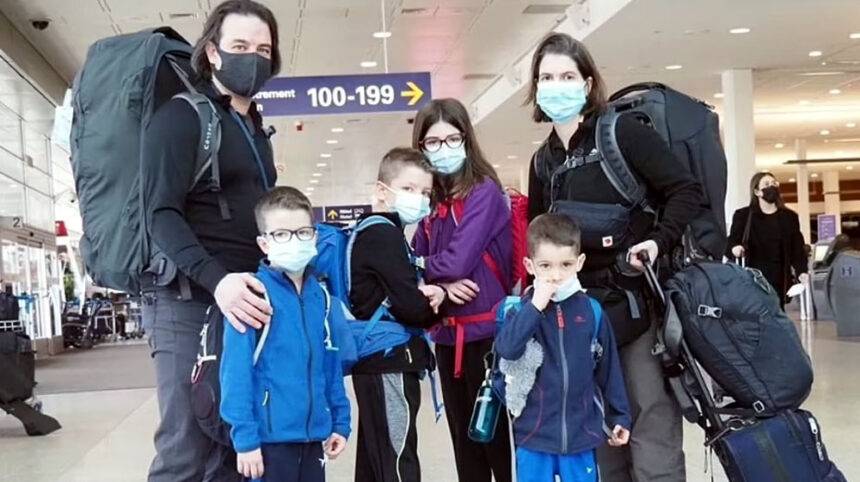A Canadian family of six set out on a year-long trip around the world, but they lost track of their 12-year-old daughter, 7-year-old son, and 5-year-old son because of a rare genetic condition.
When Mia Lemay-Pelletier started having trouble seeing in the evenings in 2018, her parents found out that she has retinis pigmentosa, which can make her blind until she is 30. The next year, both of his brothers, Colin and Laurent, were told they had the same disease, but the second-born Leo understood everything.
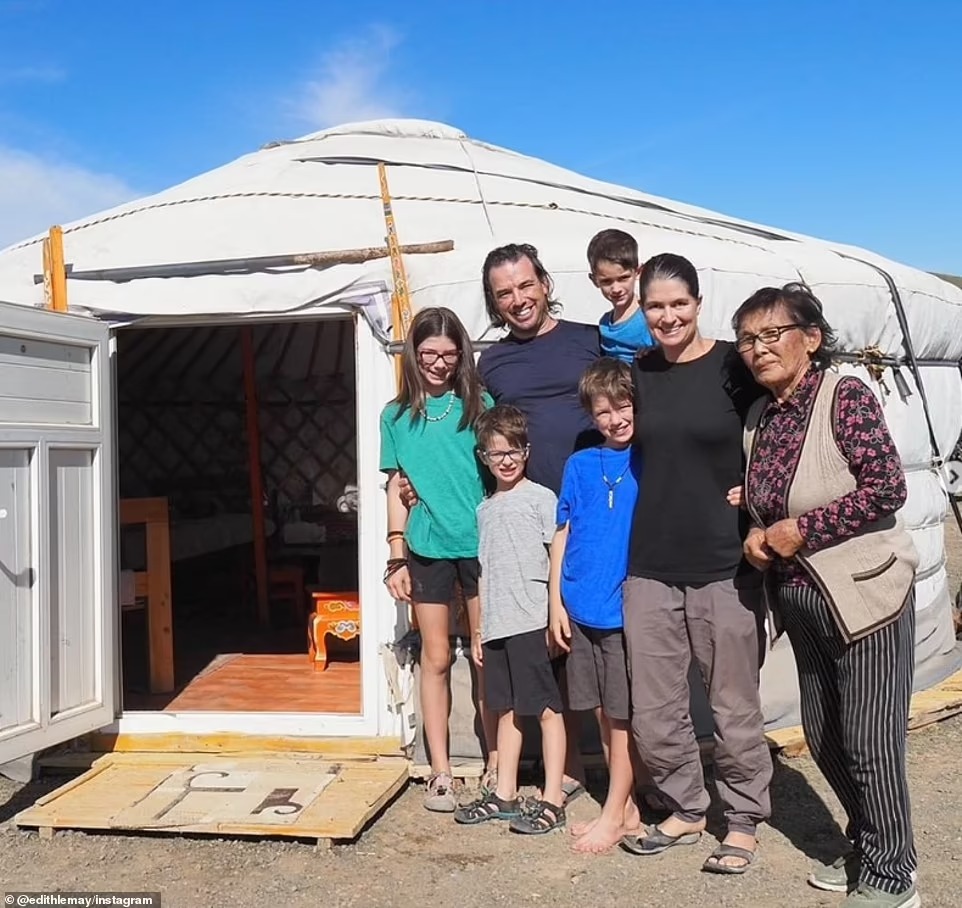
Edith Lemay, who works in finance in Quebec, where the family lives, said that when the brothers were diagnosed, they went on a trip around the world to make as many “visual memories” as they could before their eyes got worse. It was an interesting time.
The family went on a trip in March that had no set schedule. So far, they have been to Namibia, Zambia, Tanzania, Turkey, Mongolia, and now Indonesia, where they will stay for a week. He was going to start in 2020 with a trip to Russia and China, but the COVID pandemic made that impossible.
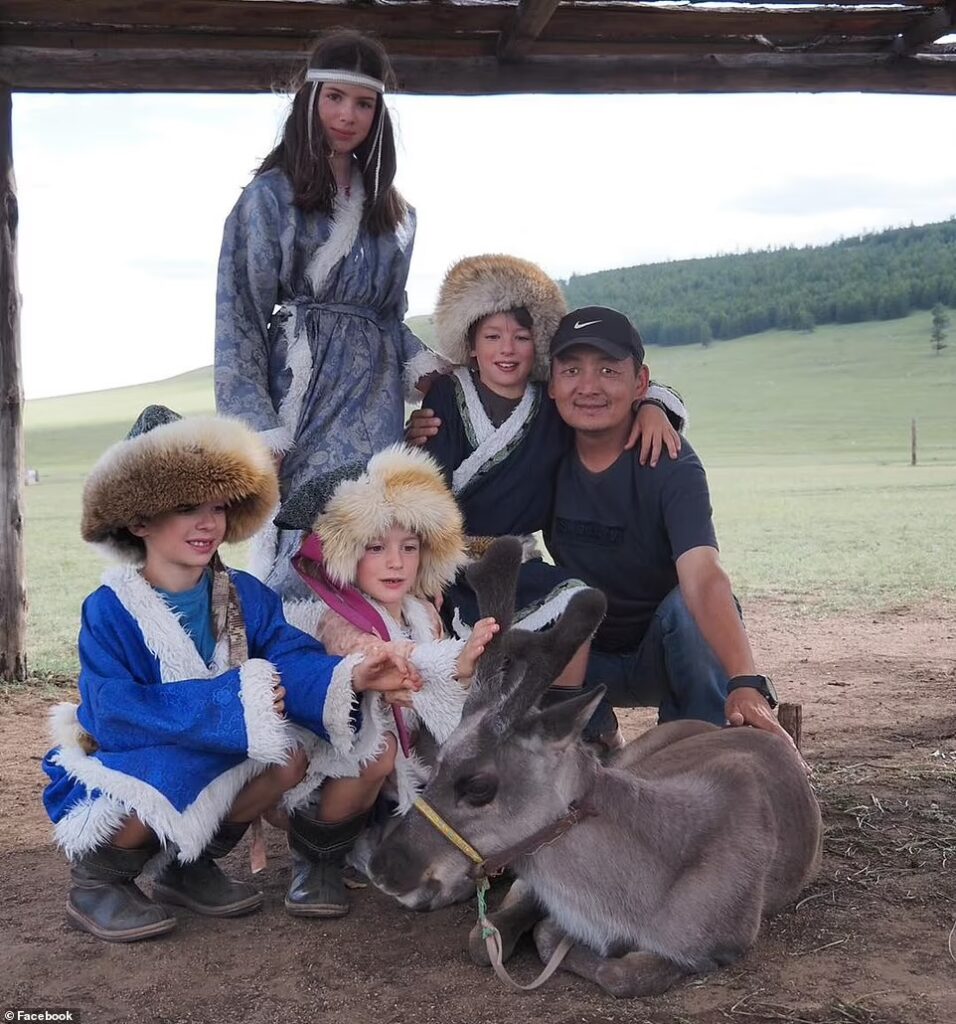
Ms. LeMay said that she wants to give her children a lot of memories and show them that no matter how hard life is, they still have running water in their homes and go to school by taking them on trips. able to go. everyday
She wrote on social media about the trip that it was great to see the kids get along, but that being with them all the time is “hard work.” He said that the youngest was already a “question bomb” and wondered if he should jump out of the bus window to get away.
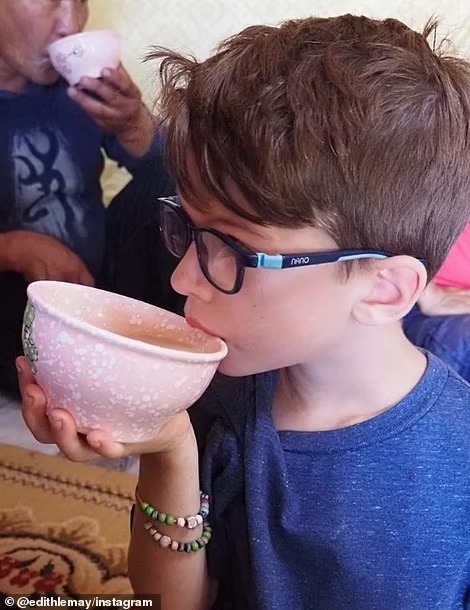
Retinis pigmentosa is a rare genetic condition in which cells start to break down in the retina, which is the part of the eye that senses light. Symptoms usually start in childhood, make it hard to see at night, get worse over time, and cause people to lose the ability to use their central or peripheral vision. This disease has no cure, and some people with it go blind before they turn 30.
Edith Lemay (second from the right) and Sebastian Pelletier (second from the left) are pictured above with their four children. On the far right is Mia, who is 12 years old. Leo, 9, Colin, 7, and Laurent, 5, are in the picture. The family is on a year-long trip around the world because they found out that three of their children have a rare genetic condition that will slowly make their eyes worse.

In March 2022, the family flew from Canada to Namibia to start their trip. Above, you can see four kids bending over to keep sand out of their eyes. The family also went to Tanzania to go on safari. He saw the elephants, the cheetah, and the hippos while he was there.
He has also travelled to Mongolia, where he lived in tents and rode camels in the Gobi Desert. Their mother said she wanted to show them how lucky they were to have done what they did.
The picture above shows the kids on their trip through Mongolia. The next part of his tour will take him to Indonesia. His parents said there was no plan, but he has a list of things he wants to do, like ride a camel.
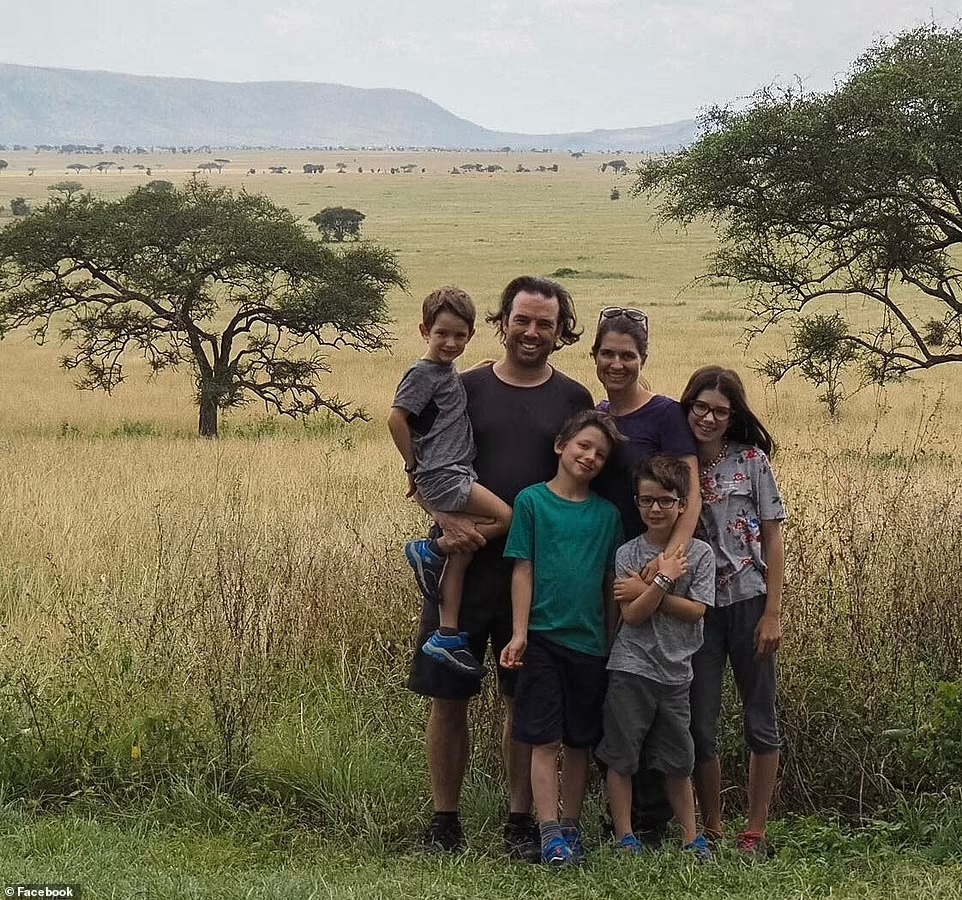
The mother also said that for every good picture of her kids, she has at least ten of them making faces or acting badly. One of his sons is shown above drawing a face on a step in Turkey.
The idea for World Vacation came from a suggestion from a child psychologist to Ms. Lemme and Sebastian Pelletier that they should help their children make the most of their “visual memories.”
Ms. LeMay told CNN Travel in an interview, “I thought, ‘I’m not going to show up.'” Mia: “There’s an elephant in a book, so I’ll take him to see a real one.” “And I’ll fill her mind with the best, most beautiful images I can make.” She said, “Now that we have a diagnosis, we need to act quickly.” There are lots of fun things to do at home, but nothing beats going on a trip.
The family had planned to start their July 2020 vacation with a land trip through Russia and China, but these plans had to be put on hold because of the global pandemic.
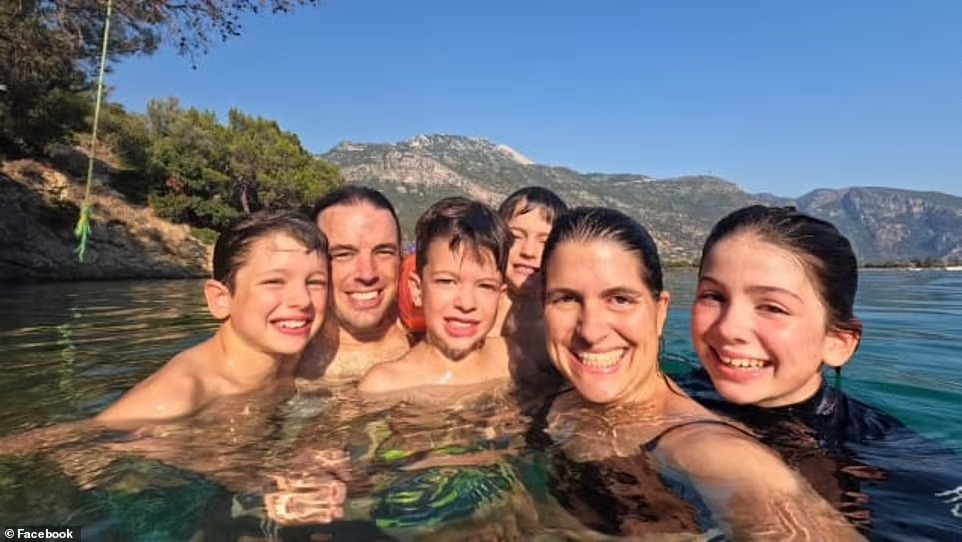
He went to eastern Canada in July of the next year, when restrictions were eased, but he didn’t start his year-long trip until March of 2022, when he arrived in Namibia. Last week, he flew from Mongolia to Indonesia, and he doesn’t plan to go back to Quebec for at least six months.
They have a list of things they want to do, and Mia says she wants to take Laurent horseback riding. Laurent says he wants to drink camel juice. They were going to start the holiday in July 2020, but because of the COVID pandemic, they had to change their plans. But in July of this year, he started a tour that will last a whole year (shown above preparing to leave Quebec).
Turkey: These pictures show kids visiting an abandoned village in Turkey. The family is shown above, standing in front of a hut where they went to. Children can sometimes bring their own diagnoses. Mia has known about it since she was seven, but the two youngest kids just found out about it recently. It has always been a “fact of life” for Leo.
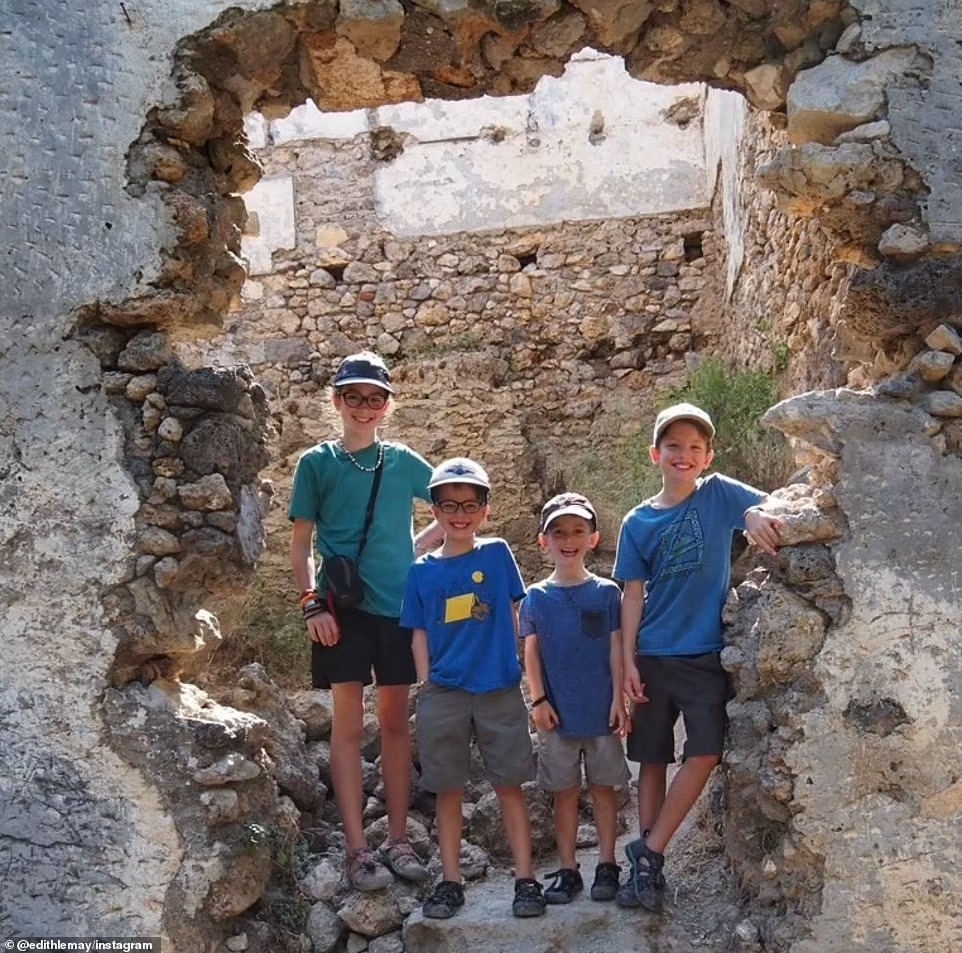
Ms. LeMay said, “My child asked me, “Mom, what does it mean to be blind?” Will I be driving the car? ” There are five. But he’s getting a better idea of what’s going on. He thought it was a normal conversation, but it broke my heart.
The National Eye Institute in the US says that retinis pigmentosa is a group of rare eye diseases that cause visual cells to break down. These diseases are caused by genetics and affect only a small number of people.
Most of the time, the first warning signs show up when a person is a child, when they start to have trouble seeing at night and run into things. But the vision will slowly get worse over time.
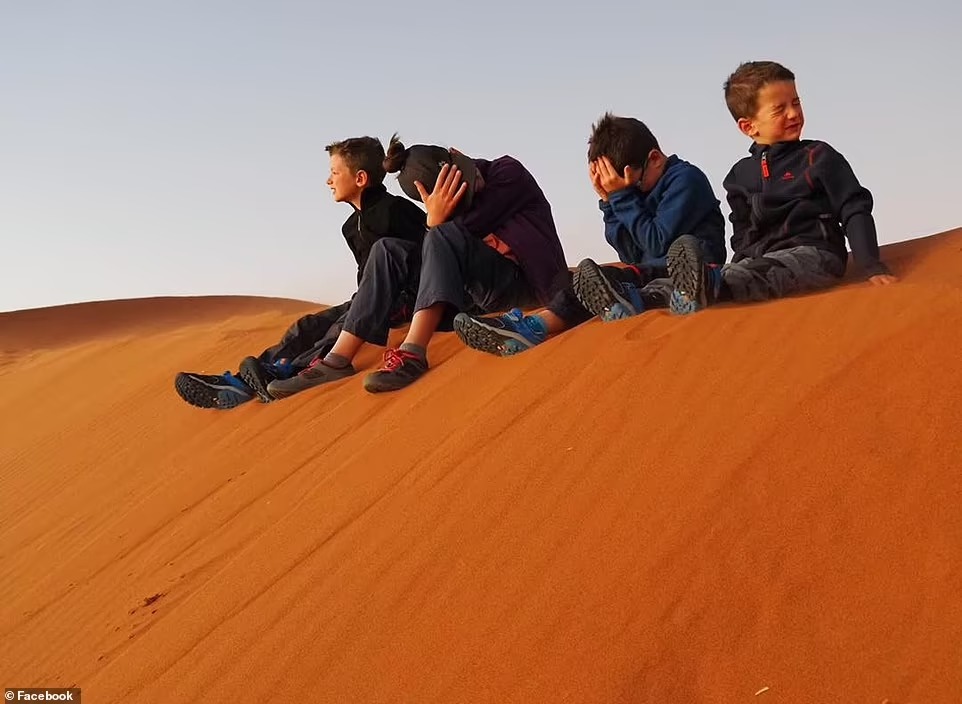
Most people will lose their peripheral vision, which is the ability to see things around the thing they are looking at, or their central vision, which is the area they see in the middle of their field of vision. Some people lose their sight in their 30s.
Most of the time, the condition is diagnosed with a genetic swab or a dilated eye exam to see how the retina reacts.
Experts say that there is no cure for the condition right now, but that low vision aids and programmes to help rehabilitate new vision may help.

